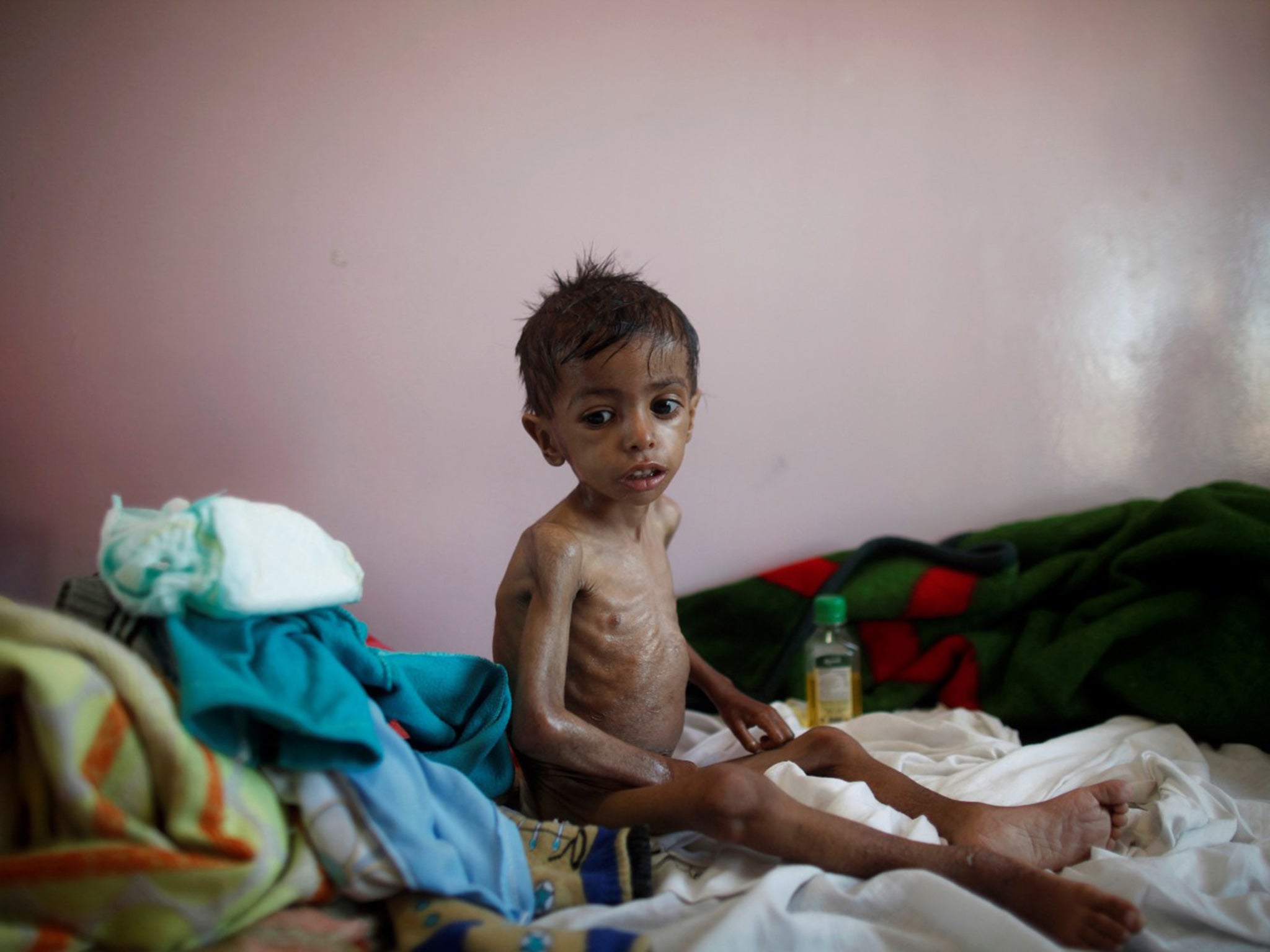Number of people facing severe hunger worldwide surpasses 100 million
More investment is needed to provide support for farmers, allowing people to feed themselves, officials urge

Your support helps us to tell the story
From reproductive rights to climate change to Big Tech, The Independent is on the ground when the story is developing. Whether it's investigating the financials of Elon Musk's pro-Trump PAC or producing our latest documentary, 'The A Word', which shines a light on the American women fighting for reproductive rights, we know how important it is to parse out the facts from the messaging.
At such a critical moment in US history, we need reporters on the ground. Your donation allows us to keep sending journalists to speak to both sides of the story.
The Independent is trusted by Americans across the entire political spectrum. And unlike many other quality news outlets, we choose not to lock Americans out of our reporting and analysis with paywalls. We believe quality journalism should be available to everyone, paid for by those who can afford it.
Your support makes all the difference.More than 100 million people worldwide are facing acute malnutrition and risk starving to death, a senior United Nations official has warned.
Dominique Burgeon, director of the emergency division at the UN Food and Agriculture Organisation (FAO) said the number of people at risk would continue to grow, costing millions of lives, if humanitarian aid is not paired with more support for farmers.
Latest figures showed 102 million people were on the brink of starvation last year, an increase of almost 30 per cent from 80 million in 2015.
The rise has been attributed to deepening humanitarian crises in Yemen, South Sudan, Nigeria and Somalia, where conflict and severe drought have crippled food production levels.
“Humanitarian assistance has kept many people alive so far but their food security situation has continued to deteriorate,” Mr Burgeon told the Thomson Reuters Foundation in an interview.
More investment is needed to help people feed themselves by farming crops and livestock, he added.
“We come with aeroplanes, we provide food assistance and we manage to keep them alive but we do not invest enough in the livelihood of these people,” he said.
“We avoid them falling into famine but we are not good at taking them off the cliff, away from food insecurity.”
Last month, the UN World Food Programme said more than 20 million people – greater than the population of Romania or Florida – risk dying from starvation within six months in four separate famines.
Wars in Yemen, Nigeria and South Sudan have devastated populations, while a drought in east Africa has ruined the agricultural economy and left millions in poverty.
Famine has been formally declared in two counties of South Sudan as a result of prolonged civil war and the ongoing economic crisis.
In one-profitable northeastern Nigeria, a seven-year insurgency by Boko Haram militants has uprooted some 1.8 million people, forcing many to abandon their farms.
The government says it has reclaimed most of the territory it lost to the jihadist group but security remains a concern, UN officials said.
Mr Burgeon said the FAO had raised less than a third of the $20m (£16.3m) it needs within the next two weeks to support almost two million people in the upcoming planting season in Nigeria – an investment he said would save money in the future.
“If you don’t support those who want to return to their area to crop then you have to agree that you will have to provide massive aid assistance at least until the harvest in 2018, which is unbearable,” he said.
Lack of funding was also hampering the agency’s response in Syria, where food production dropped to an all-time low in 2016, Mr Burgeon added.
“A lot is going to food assistance and barely anything is going to help farmers who have decided to stay on their land,” he said, urging international governments to provide better, localised support.
“What we need to do is to help them stay and crop their land and be there for the future. To survive is not enough.”
Responding to the crisis in South Sudan last month, UN officials blamed the country’s politicians, adding that the country’s fertile land conditions suggest the famine is “man-made”.
Head of the UN’s World Food Programme, Joyce Luma said: “There is only so much that humanitarian assistance can achieve in the absence of meaningful peace and security.”
Join our commenting forum
Join thought-provoking conversations, follow other Independent readers and see their replies
Comments